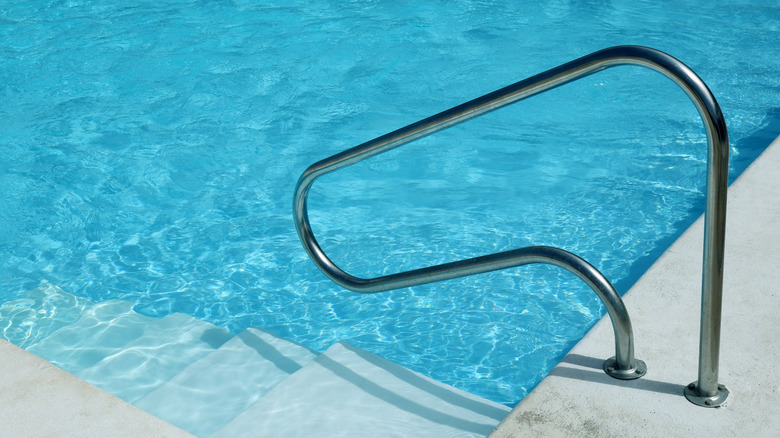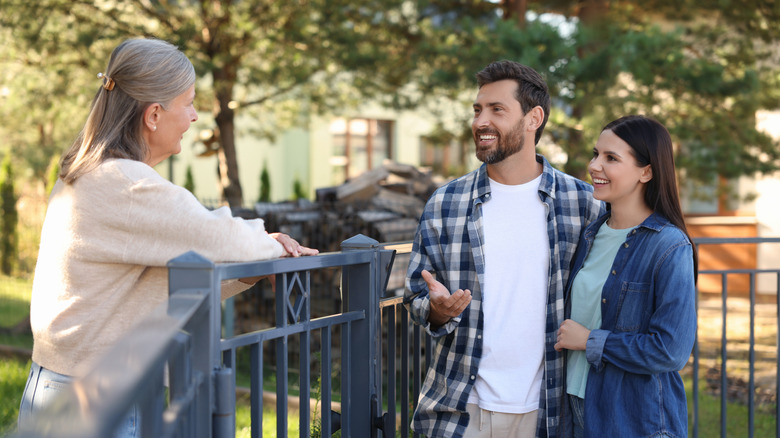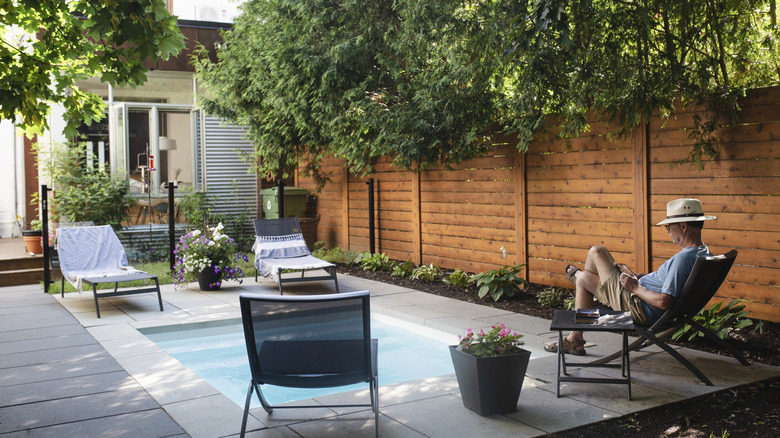Neighbor's Pool Doesn't Have A Fence? Here's What You Need To Do
Pools come with a variety of benefits, including endless summer fun and an increased home value that offers significant ROI, but they're not without their drawbacks. If your neighbor has put in a pool but no fence, you might be worried about your children or pets drowning in the unsecured pool. In this case, you have two options. You can speak to your neighbor about the issue or take your own preventative measures to mitigate access to the unfenced pool.
A big problem with pools is safety. According to the U.S. Consumer Product Safety Commission, an average of 269 children under age 5 drowned in residential swimming pools each year between 2019 and 2021. In the same period, 81% of all pool- or spa-related fatal drownings among children under 15 occurred at home. Outside of children, pools can be a danger to pets and wildlife, which is why many states have implemented laws requiring pools to be fenced. Still, many homeowners install pools without checking local laws. There is no federal regulation regarding safety fencing around residential pools, so if you're interested in encouraging your neighbor to build a fence, you should check the building codes and safety requirements in your state.
Open a dialog with your neighbor about the pool fence
Knowing your neighbors makes speaking to them about potential issues easier, but if you aren't familiar with them, you should go over and introduce yourself. Getting along with difficult neighbors can be a challenge, but it's much better to diffuse tension rather than immediately escalate. Talk to them about the concerns you have regarding their unfenced pool, emphasizing safety issues that will also affect them and their family. Bring up the laws in your state, not as a threat but to keep them informed, as they might not even be aware that a pool could be a safety issue. If you want them to build a fence around their pool, make sure to request as much directly and politely, but don't offer to pay for it, and understand that they are not necessarily legally required to do anything. Catching your neighbor at a good time can be difficult, in which case you can write them a letter outlining your concerns while steering clear of accusatory language.
Most neighborhood issues can be solved without a lawyer, but if there is a history of safety concerns surrounding your neighbor's property and they are not amenable to changing their approach, you should consult an attorney. If no laws have been broken, there is not much a legal representative can do, but they can point you in the right direction. Escalating to involving the law should be your last resort if you want a harmonious relationship with your neighbor.
Invest in preventative measures to protect your family
You can't control your neighbors, but you can control yourself. If your neighbor refuses to fence in their pool, consider putting in a "good neighbor fence" yourself. A good neighbor fence is a fence that encourages peaceful relations between you and your neighbor by separating your yards. In the case of pool safety, this fence also keeps your children and pets from accidentally wandering into the neighbor's yard and potentially drowning in their pool. You can discuss the fence with your neighbor and perhaps even convince them to cover some of the cost and maintenance.
Alongside physical barriers, there are other things you can do to increase safety regarding your neighbor's pool. While you should keep open communication with your neighbor about the pool, the same goes for your own family members. Talk to your children about pool safety and make sure to keep an eye on them and any family pets if they're going to be outside. Teach children and pets how to swim and how to safely exit a pool in case of an accident.


